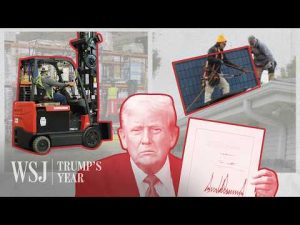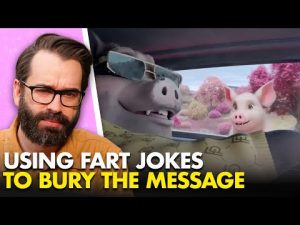In a remarkable display of boldness, JD Vance, the American politician, delivered a speech at a high-profile Munich gathering, shaking the very foundation of European political correctness. For many, including those who tuned in from across the Atlantic, the moment was nothing short of electrifying. Vance stood before a sea of European leaders who, let’s be honest, looked like they had just sucked on a lemon when confronted with hard truths about globalism and its discontents. With the zeal of someone who had waited far too long to speak his mind, he made it clear that the United States is not a cash cow for the world, but a nation that prioritizes its own interests and values.
The sincerity of Vance’s words rang through the room as he highlighted the discomforting reality facing Europe — a continent grappling with the consequences of unchecked illegal immigration and a flood of asylum seekers. For many years, discussing these issues openly was akin to stepping into a hornet’s nest. With politicians jailing dissenters for simply sharing their views, one could almost hear a collective gasp every time Vance reminded the audience that people in power must acknowledge their mistakes. He laid it on thick, pointing out how a car attack by an asylum seeker shattered a community, illustrating the grim results of a decade’s worth of policy missteps gone unnoticed. The silence that met his observations was telling; the leaders knew he was right, and Vance had struck a raw nerve.
Vance didn’t stop at immigration; he pushed further into the territory of free speech, something that appears to be continually under siege in Europe. He called out the absurdity of laws that penalize individuals for praying quietly near an abortion clinic, making it clear that such restrictions are a step too far. The contrast between the liberties appreciated in America and the constraints imposed in Europe was stark, as he effectively reminded his audience that thought suppression is never the good side of history. Witnessing their expressions change from disdain to a dawning realization might have been the most satisfying part of the entire speech, as the illusion that the status quo was acceptable began to crumble.
One can’t help but chuckle at the pompous leaders who have prided themselves on being the standard-bearers of liberty, yet are now seen as implementing policies that censor the very freedoms their forebears fought hard to uphold. Vance’s remarks crumbled the facade they had carefully crafted, likening their actions to a real-life version of the movie “Demolition Man.” The laughter that erupted in that gathering might have been muffled, but it was undoubtedly there among audiences who recognized the ridiculousness of their own situation. In a sense, Vance became the town crier in a community that desperately needed one, and the silence that followed his honest observations spoke volumes about the vulnerability of the elite narrative.
Bringing it full circle, Vance tugged at the heartstrings of shared values and historical context, reminding everyone present that the principles of freedom and innovation must be safeguarded. He called for a return to a society that embraces creative thought, rather than punishes it through fear tactics and heavy-handed regulations. It was a call not just for policy change but for a cultural renaissance. He emphasized that a thriving democracy shouldn’t be so easily swayed by outside influences or frail in the face of a mere advertising campaign from a foreign country.
In a world increasingly dominated by ideologues, Vance’s speech stands as a clarion call for reason and robust governance. The notion that liberty should guide decisions, rather than fears of dissent, is fundamental. By reminding Europe of its heritage of resilience and innovation, he not only struck a nerve but also sparked a conversation that many thought was long buried under layers of bureaucratic doublespeak. The crowd may have left with more questions than answers, but isn’t that the first step toward progress?







